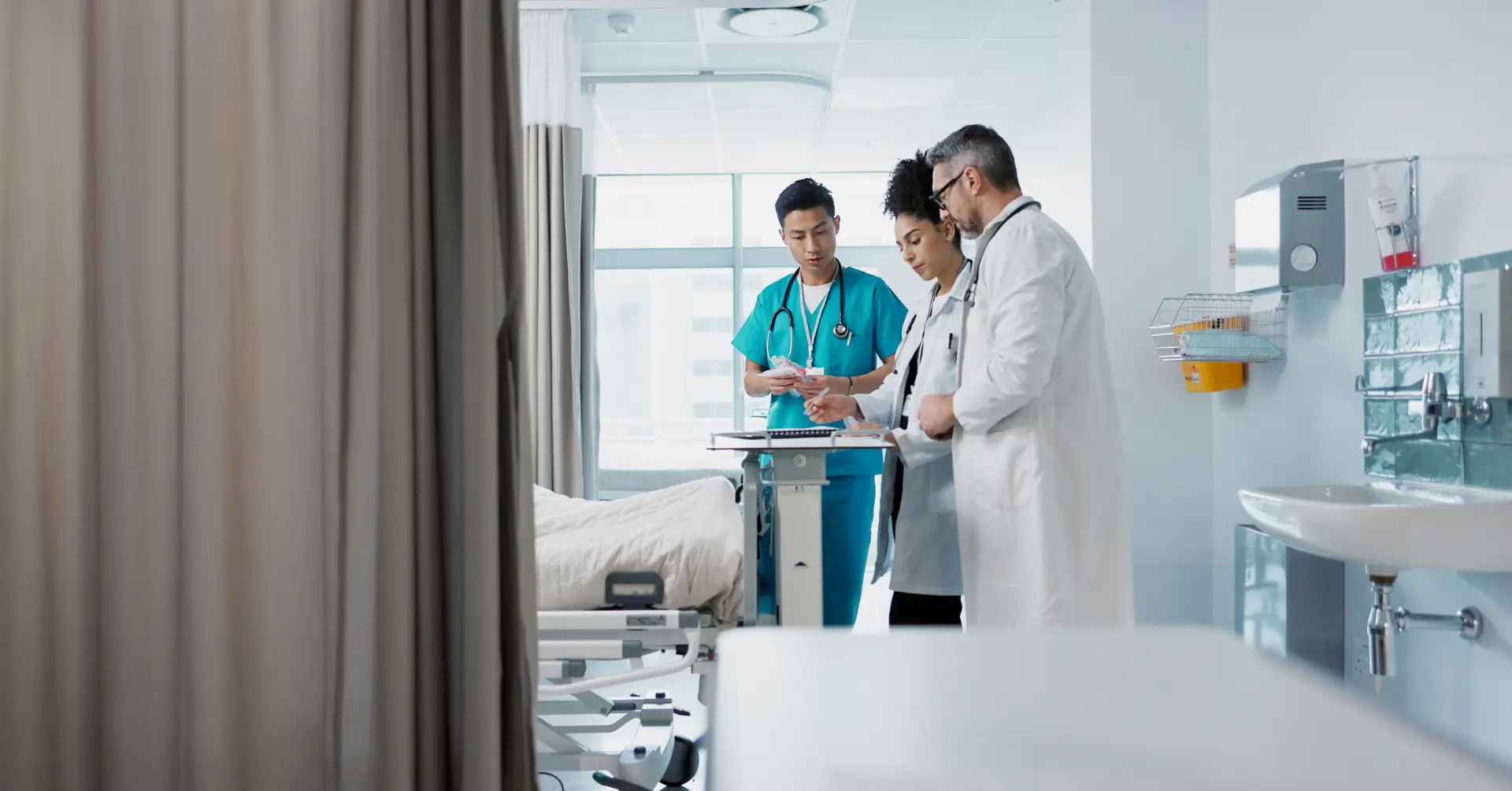Your clinical expertise is the foundation of your practice. However, that expertise is not enough to deliver exceptional patient care over a long and fulfilling career. To build a sustainable career, one where you can give patients your best every shift, you need to not only continue your medical education, but also strengthen certain qualities and develop daily habits that protect your well-being, your practice, and your patients.
The foundation: Five essential qualities
Five core qualities help to create the foundation for exceptional clinical practice. Each quality is reinforced through specific daily practices that turn abstract concepts into concrete actions.
Communication: Clear, compassionate connection
Effective communication forms the cornerstone of clinical practice, affecting every patient interaction, care team collaboration, and professional relationship. This means adapting your approach based on your audience and situation, from explaining complex diagnoses in understandable terms to coordinating care with colleagues.
Daily practices that strengthen communication:
- Tailor your language to match the listener’s background and emotional state
- Confirm understanding rather than assuming it (“Let me make sure I explained that clearly…”)
- Practice active listening to understand the concerns behind the questions
- Document conversations clearly to ensure continuity of care
Clear communication prevents misunderstandings, builds trust, and creates the foundation for all other aspects of clinical excellence.
Collaboration: Authentic teamwork
Modern health care is inherently collaborative. Your success depends on your ability to work effectively across disciplines, departments, and hierarchies. True collaboration requires authenticity, shared accountability, and a commitment to continuous learning.
Daily practices that enhance collaboration:
- Execute smooth patient handoffs using standardized protocols (like SBAR)
- Share relevant information proactively with team members
- Address conflicts directly but respectfully when they arise
- Offer assistance to overwhelmed colleagues when possible
Effective collaboration recognizes that diverse perspectives improve patient outcomes and that no one succeeds alone in health care.
Confidence: Balanced professional presence
Clinical confidence combines professional competence with appropriate humility and diagnostic rigor. Patients and colleagues need to trust your judgment, but overconfidence can be as dangerous as uncertainty. True confidence includes making accurate diagnoses while remaining open to input and ready to seek help when needed.
Daily practices that build appropriate confidence:
- Make decisions based on current evidence and clinical experience
- Consider differential diagnoses, not just the most obvious possibilities
- Acknowledge when you don’t know something and seek appropriate consultation
- Stay updated with clinical guidelines and evidence-based practices
- Review cases that didn’t go as expected to identify learning opportunities
- Seek second opinions for complex cases without viewing it as weakness
Diagnostic confidence improves with experience, but it requires intentional practice, continuous learning, and the humility to question initial impressions.
Conscientious: Thorough documentation and attention to detail
Being conscientious in clinical practice means maintaining meticulous attention to the details that protect patients and your professional standing. This quality encompasses thorough documentation, careful attention to protocols, and consistent follow-through on commitments.
Daily practices that demonstrate conscientiousness:
- Document in real time whenever possible
- Include both objective observations and clinical reasoning in notes
- Ensure all documentation is complete, accurate, and legible
- Review documentation before finalizing to catch errors
- Follow up on pending tests, referrals, and patient concerns
- Maintain organized systems for tracking patient care
In health care, conscientiousness isn’t perfectionism—it’s professional responsibility. Being thorough protects patients, supports colleagues, and safeguards your practice.
Calm: Composure under pressure
Health care environments are inherently stressful, with high stakes and urgent timelines. Your ability to maintain composure directly impacts patient safety, team morale, and your own wellbeing. Calmness isn’t about suppressing emotions—it’s about managing them effectively.
Daily practices that help maintain composure:
- Develop personal stress management techniques that work in clinical settings
- Take brief pauses to assess urgent situations objectively
- Practice consistent kindness even during demanding days
- Use controlled breathing and measured speech during high-pressure moments
Maintaining calm allows you to respond thoughtfully rather than react impulsively, which serves everyone better.
Building sustainable excellence
These five qualities work together synergistically. Communication skills enhance collaboration. Confidence enables calm decision-making. Conscientiousness reinforces both diagnostic accuracy and professional reliability. Kindness and composure support all professional relationships.
Organizations that understand this integration create environments where clinicians can develop both personally and professionally. When evaluating potential employers, consider whether they:
- Provide resources for character development alongside technical training
- Support systems that reduce administrative burden so you can focus on patient care
- Encourage collaboration across departments rather than creating silos
- Recognize and reward both clinical excellence and professional behavior
- Invest in work-life balance that prevents burnout and supports sustained performance
Your clinical practice is built day by day, interaction by interaction. By focusing on core character qualities and supporting them with protective daily habits, you create the foundation for a career that serves patients effectively while providing personal satisfaction.
The health care profession demands much, but it also offers the opportunity to make a meaningful difference in people’s lives. Strengthening your practice through intentional character development and consistent daily excellence ensures you can meet those demands while thriving in the work itself.
Ready to strengthen your clinical practice with an organization that supports your growth? Discover how SCP Health empowers clinicians to excel through comprehensive support, professional development opportunities, and a culture that values the 5 Cs. Explore clinical careers with SCP Health.






